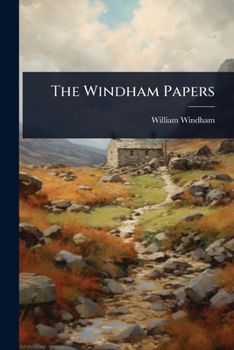The Windham Papers
Select Format
Select Condition 
Book Overview
The Windham Papers offers a comprehensive look into the life and times of William Windham (1750-1810), a prominent figure in British politics during a pivotal era. This collection meticulously compiles Windham's correspondence, providing invaluable insights into his career as a member of Pitt's first cabinet and the Ministry of "all The Talents."
Included are previously unpublished letters from significant historical figures such as George III, the Dukes of York and Gloucester, Pitt, and Fox, shedding new light on the political machinations and personal relationships that shaped the late 18th and early 19th centuries. This volume serves as a primary source for understanding the intricacies of British politics, the challenges of leadership during wartime, and the intellectual climate of the period. The Windham Papers remains an essential resource for historians, political scientists, and anyone interested in the Georgian era.
This work has been selected by scholars as being culturally important, and is part of the knowledge base of civilization as we know it. This work was reproduced from the original artifact, and remains as true to the original work as possible. Therefore, you will see the original copyright references, library stamps (as most of these works have been housed in our most important libraries around the world), and other notations in the work.
This work is in the public domain in the United States of America, and possibly other nations. Within the United States, you may freely copy and distribute this work, as no entity (individual or corporate) has a copyright on the body of the work.
As a reproduction of a historical artifact, this work may contain missing or blurred pages, poor pictures, errant marks, etc. Scholars believe, and we concur, that this work is important enough to be preserved, reproduced, and made generally available to the public. We appreciate your support of the preservation process, and thank you for being an important part of keeping this knowledge alive and relevant.
Related Subjects
History




